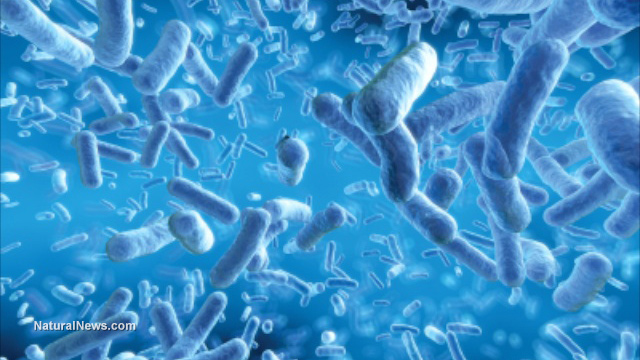Some gut microbes may be “stealing” your nutrition before you can absorb it
10/30/2017 / By Rhonda Johansson

Our gut microbes compete with each other for nutrients, which may consequently lead to us having a nutritional deficiency. Apparently, our digestive system follows a “dog eat dog” world, with intestinal bacteria hoarding vital minerals, leaving us only with their leftovers or their waste. This was the alarming deduction made by a team of scientists from the University of Wisconsin-Madison after observing several mice models. The researchers found that mice who had high levels of choline-hungry bacteria were deprived of this crucial nutrient compared to those who had normal microbiomes. Choline-starved mice were more susceptible to metabolic diseases and had an increased likelihood of bearing offspring with developmental abnormalities.
The team chose to observe bacteria that consume choline, a required nutrient for epigenetic regulation, the process in which genes express themselves. Several previous studies have concluded that choline contributes to how our DNA works. This makes it essential in not only our daily lives but for pregnant women as well. The authors of this new study found that improper diet and lifestyle habits could prompt a proliferation of choline-hungry gut bacteria who feed excessively on the nutrient in our body. So even if we consume choline-rich foods (such as soybeans, eggs, cauliflower, and milk), we may actually not be receiving any health benefit.
Current estimates infer that one in 10 pregnant women in the U.S. meet the recommended dietary intake of choline. The greater nutritional demand for choline ensures the proper development of the fetus. Choline deficiency during pregnancy has been linked to altered behavior in children, including anxiousness and learning disabilities.
The power of the elements: Discover Colloidal Silver Mouthwash with quality, natural ingredients like Sangre de Drago sap, black walnut hulls, menthol crystals and more. Zero artificial sweeteners, colors or alcohol. Learn more at the Health Ranger Store and help support this news site.
Federico Rey, a professor at the school and lead author of the study saw that mice who had greater levels of choline-eating bacteria were more likely to have disrupted epigenetic patterns in their brains. Moreover, when placed on a high-fat diet, mice with the choline-hungry microbes had more abdominal fat and had fattier livers compared to mice who did not have the choline-hungry bacteria.
“There are already human studies that show that choline deficiency is a problem that matters to human health,” said Rey on Science Daily. “What this study really provides is one possible mechanism by which this may be exacerbated.”
Before you decide to up your intake of choline supplements, however, consider this: Too much choline produces a toxic metabolite known as trimethylamine N-oxide (TMAO) which correlates to an increased risk of cardiometabolic diseases. The research team also noted that TMAO levels increased among mice who hosted choline-eating bacteria. The toxic byproduct further disrupts epigenetic patterns to create a long list of developmental problems. This complicates potential dietary remedies, as people cannot simply take more choline.
The authors say that they need to further study the complex link between nutrition, gut microbes, and host metabolism, but recommend conducting a complete health overhaul. It is exceedingly clear that gut microbiomes directly impact health, but we are only slowly understanding the exact mechanics of the relationship. (Related: Potency of superfood nutrients multiplied by certain strains of gut bacteria.)
On choline
The National Academy of Sciences does not officially recognize choline as a vitamin, but does acknowledge it as a crucial nutrient for overall health. Choline has not been extensively studied — its introduction to the medical community being only quite recent — so there is no conclusive evidence as to how much of the nutrient we should eat everyday. There is much debate on the recommended dietary intake, particularly with data pointing to the negative effects of TMAO. Even so, many nutritionists suggest consuming at least one choline-rich food a day, such as eggs.
Read more stories like this on Nutrients.news.
Sources include:
Tagged Under: brain-gut connection, child behavior, child health, choline, digestive health, disease causes, DNA, genes, gut bacteria, gut health, gut microbes, gut microbiomes, learning disability, lifestyle choices, minerals, nutrients, pregnancy diet
RECENT NEWS & ARTICLES
COPYRIGHT © 2017 COLLAPSE.NEWS
All content posted on this site is protected under Free Speech. Collapse.news is not responsible for content written by contributing authors. The information on this site is provided for educational and entertainment purposes only. It is not intended as a substitute for professional advice of any kind. Collapse.news assumes no responsibility for the use or misuse of this material. All trademarks, registered trademarks and service marks mentioned on this site are the property of their respective owners.




















